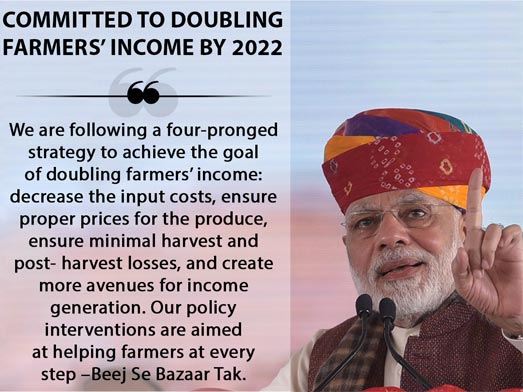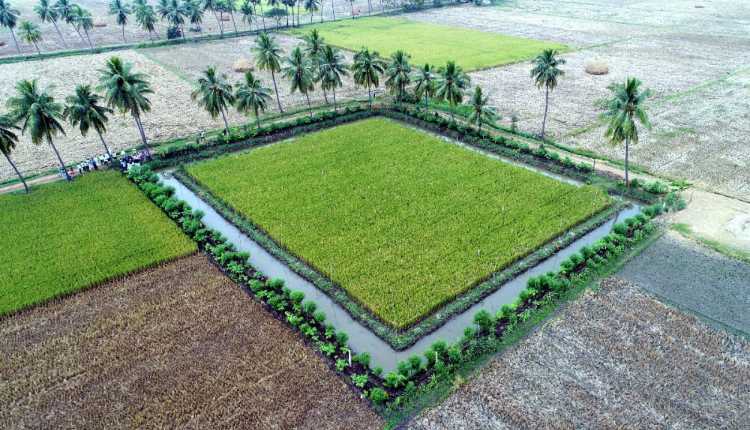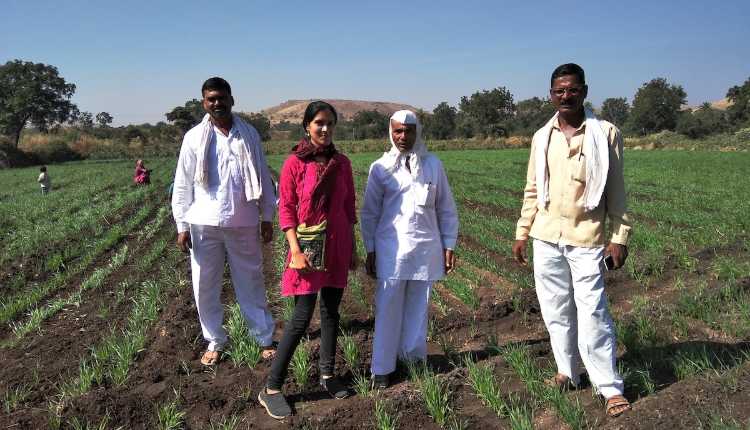From ancient times to the post-modern time, agriculture has been a significant pillar of the Indian economy. Many agricultural methods and practices like Jhum cultivation, hunting and gathering, Organic cultivation, Chemical cultivation, natural cultivation, etc. M.S. Swaminathan had said that if natural resources conservation is wrong, nothing else can be right. Zero Budget Natural Farming has been in the news because of its usage and methods and a boon to the farmers.
A British botanist, Albert Howard, wrote a letter to the prime minister of England during his visit to colonial India, it is not necessary to teach the compost techno to the Indian farmers, but it is essential to teach ancient organic Indian farming to the European farmers.
If we look into its meaning, it is a type of cultivation developed by an Indian agricultural scientist Subhash Palekar
. The cultivation is done based on the zero budget cost without using any chemical fertilizer, agricultural inputs, and other types of pesticides. Zero budget natural farming is a strategy for compound free agribusiness drawing from customary Indian practices. It is an extraordinary model that depends on Agro-biology. It plans to cut down the expense of creation to almost zero and re-visitation of a pre-green upset farming style. ZBNF depends on 4 columns: Jeevamrutha: It is a combination of new dairy animals manure and matured cow pee (both from India’s native cow breed), jaggery, beat flour, water and soil; to be applied on farmland. Bijamrita: It is a creation of neem leaves and mash, tobacco, and green chillies arranged for creepy crawly and irritation the executives, that can be utilized to treat seeds. Acchadana (Mulching): It secures dirt during development and doesn’t pulverize it by ploughing. Whapasa: It is where there are both air atoms and water particles present in the dirt. Subsequently helping in lessening water system requirement. The ZBNF technique advances soil air circulation, negligible watering, intercropping, bunds, and dirt mulching and debilitates escalated water system and profound furrowing. It suits all yields in all agro-climatic zones.

The government of India has promised to the farmers to double their income by 2022. In this, the main challenge is the low cost of the farmers’ production. But through using this Zero Budget Natural Farming, this promise of government can be fulfilled because, in this type of agriculture, farmers can do the cultivation with more productivity at zero cost using natural resources like wind, water, cow-dung, Jeevamrut, Nitrogen, Phosphorous, and Potash, etc. They can get more price out of it as compared to other types of cultivation. And they can reuse these seeds for years and years.
For Example, Basmati Rice and Bansi Wheat can be produced from 18-24 quintals from Natural Farming while producing a maximum of 10 quintals through chemical farming. Maharashtra’s drought-prone area like Vidarbha and some areas of Karnataka where the horticulture did through Natural Farming is not causing farmers to do Suicide. It is proving a boon for them. Andhra Pradesh has become the first State of our country to implement Zero Budget Natural Farming in the State. Zero Budget Natural Farming has another advantage of not losing the fertility of the soil.
However, some Indian Agricultural Scientists do not agree with the fact that Zero Budget Natural Farming can take the place of Chemical farming. But it is believed that criticism of discovery makes it better and developed. The government had announced Rs. 500 crore for Paramparagat Krishi Yojana and Rs. 12.5 crore for National Project on Organic Farming in 2020-21 financial budget. These are the good steps.
Some Challenges
 Sikkim (India’s first natural state), has seen some decrease in yields following natural farming changes. Numerous ranchers have returned to traditional farming after seeing their ZBNF returns drop following a couple of years. While ZBNF has certainly assisted save with ruining ripeness, its job boosting efficiency and ranchers’ pay isn’t decisive yet. ZBNF advocates the need for an Indian variety of dairy animals, whose numbers are declining rapidly. Livestock Census indicates that the nation’s all-out populace of native and common steers has dropped by 8.1%. Low use by the public authority: Last year, the public authority dispatched Rashtriya Krishi Vikas Yojana, a lead Green Revolution plot with an assignment of Rs 3,745 crore for the monetary year 2019-20.
Sikkim (India’s first natural state), has seen some decrease in yields following natural farming changes. Numerous ranchers have returned to traditional farming after seeing their ZBNF returns drop following a couple of years. While ZBNF has certainly assisted save with ruining ripeness, its job boosting efficiency and ranchers’ pay isn’t decisive yet. ZBNF advocates the need for an Indian variety of dairy animals, whose numbers are declining rapidly. Livestock Census indicates that the nation’s all-out populace of native and common steers has dropped by 8.1%. Low use by the public authority: Last year, the public authority dispatched Rashtriya Krishi Vikas Yojana, a lead Green Revolution plot with an assignment of Rs 3,745 crore for the monetary year 2019-20.
There is a large group of primary promoting issues that should be tended to first before planning to accomplish the yearning objective of ZBNF. For instance: Reinforcing of rural market framework. Stretching out the obtainment component to all foodgrain and non-foodgrain yields to all States. Usage of value lack instalment framework for chose crops. Fixing the least help costs (MSP) in consonance with the expense of development. Annulling least fare cost for rural wares. Establishing enactment on ‘option to sell at MSP’ needs prompt consideration. MGNREGS should likewise be connected with ranch work to diminish the expense of development, which has raised faster in recent years.
In conclusion, it can be said that the significant characteristics of Zero Budge Natural Farming such as- Zero Budget, More productivity, more price, and freedom from debt, no chemical fertilizers prone disease, and most importantly, climate change resilience, etc. are proving a boon for more than 50 lakh farmers. This helps farmers be independent economically and helps other sections of society reduce the chemical prone disease, polluted environment, and polluted eatable products, etc. There is a need to implement it at a wider level by the government and aware farmers. Along with it to get support from the farmers, the country’s youth can come forward to make this possible for the whole country as it is said that youth is the tomorrow of the country. It is also stated that without proper respect for the soil, a healthy and good society is not possible.


